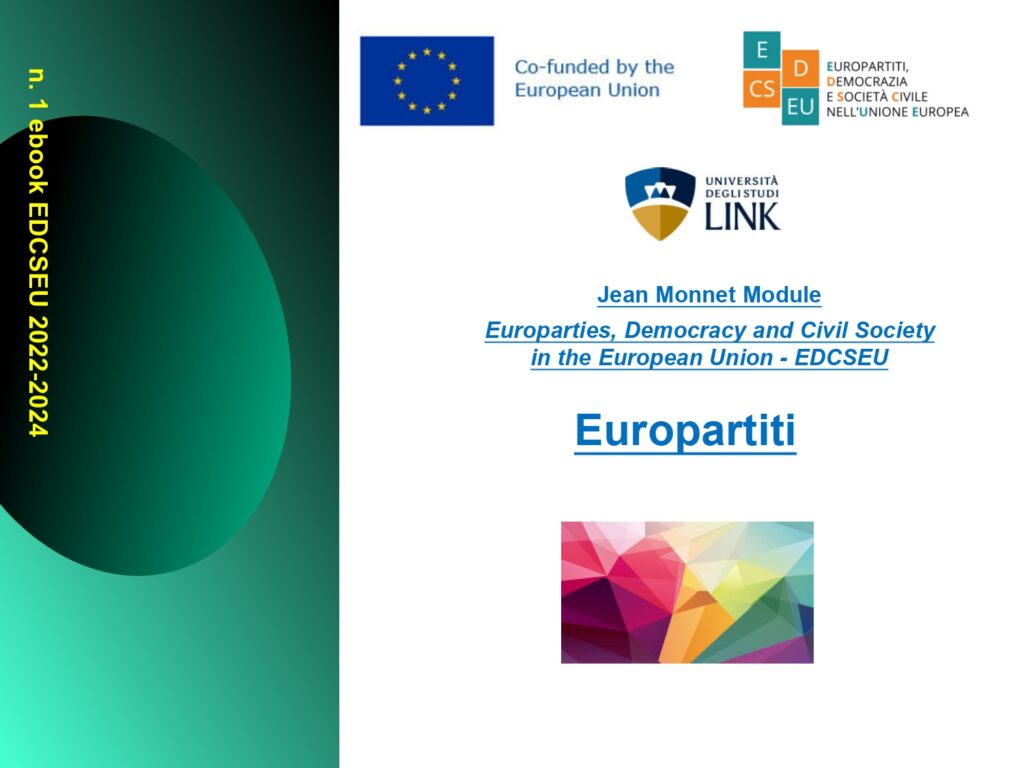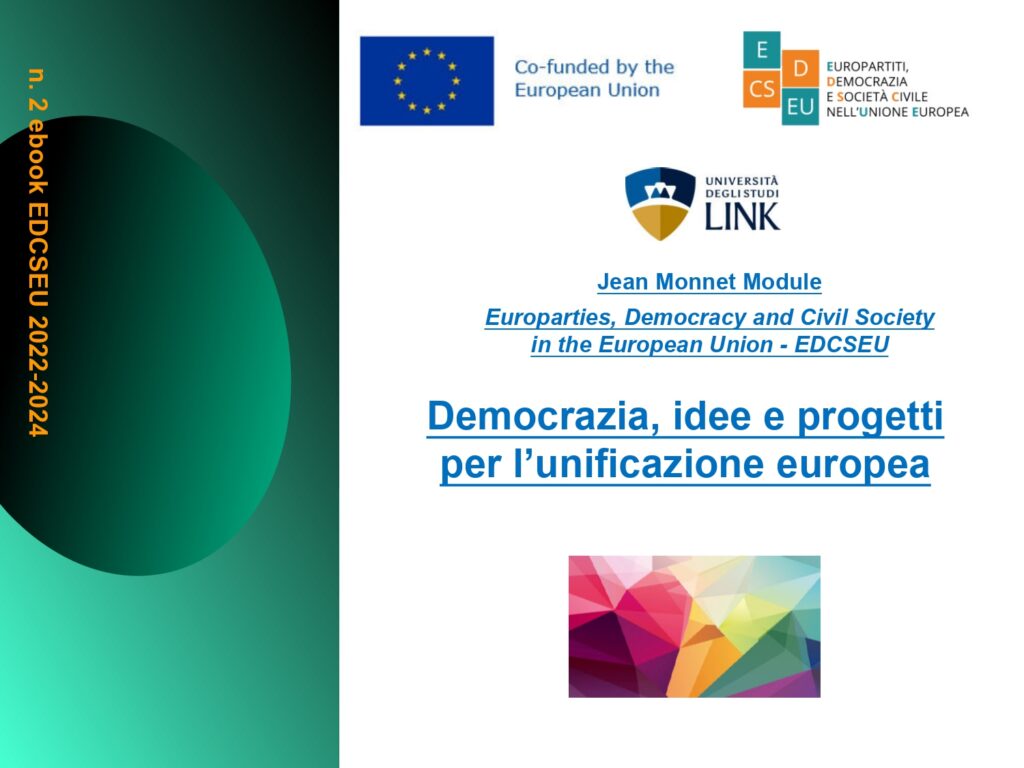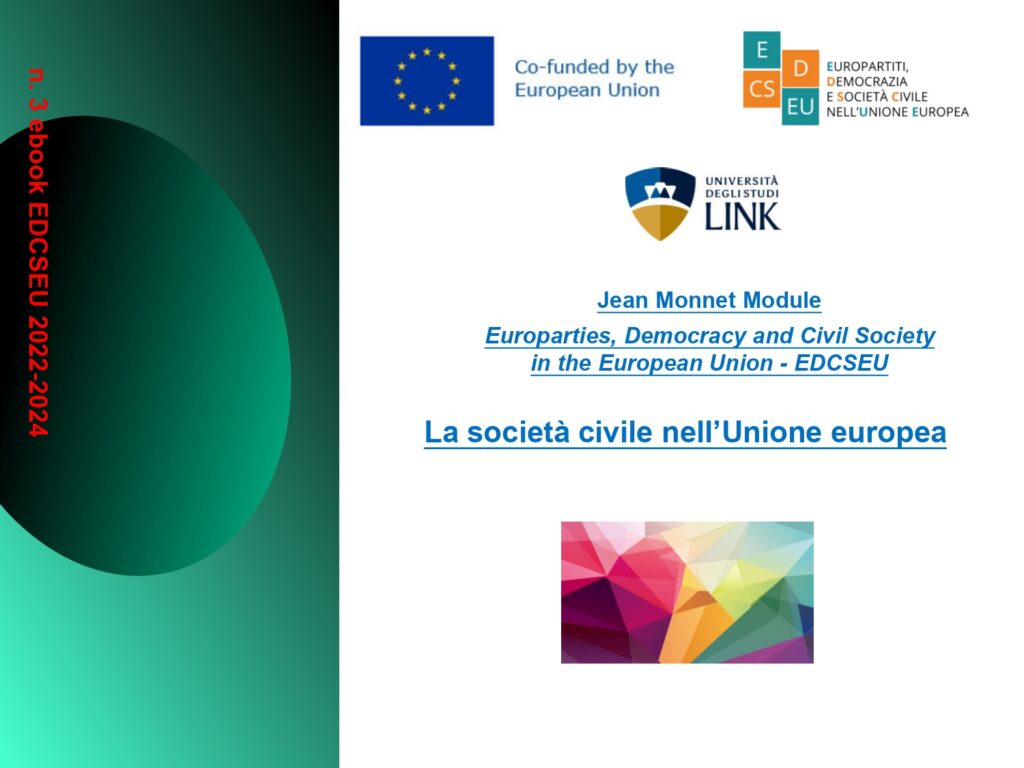About
“Europarties, Democracy and Civil Society in the EU” is a training project consisting of a teaching module linked to the History of European Integration teaching and provides an important educational and experiential offer linked to the study and in-depth study of the different European political families with the analysis of their thinking, the different organisational levels (European party, group in the European Parliament, European political foundation and main members) and their impact on the European institutions (and in particular in the work in the European Parliament) and European society.
A second part of the module provides an understanding of the articulations of European civil society interests and organisations that find partial expression in the Committee of the Regions (local authorities) and in the Economic and Social Committee (productive organisations and interest groups, trade unions and social organisations), as well as of the main expressions of European non-governmental and social organisations and networks involved in European policy-making processes.
Finally, with reference to the development of European democracy, it analyses the characteristics and instruments of European citizenship and the most relevant transnational proposals and actors involved in the discussion on the future of Europe. In this regard, starting from a historical survey of civic mobilisations for the reform of the treaties and the development of European integration (pro-European and federalist movements, Eurosceptic movements, etc.), students are constantly involved in cooperative activities to acquire knowledge and skills related to the functioning of the European Union and its democratic development, in meetings with representatives of the organisations examined, seminars and debates on the issues addressed.



